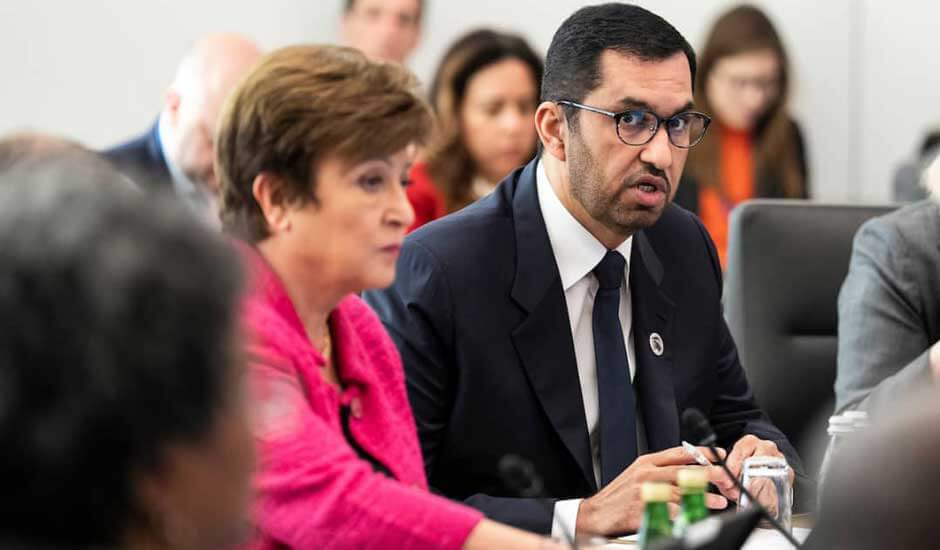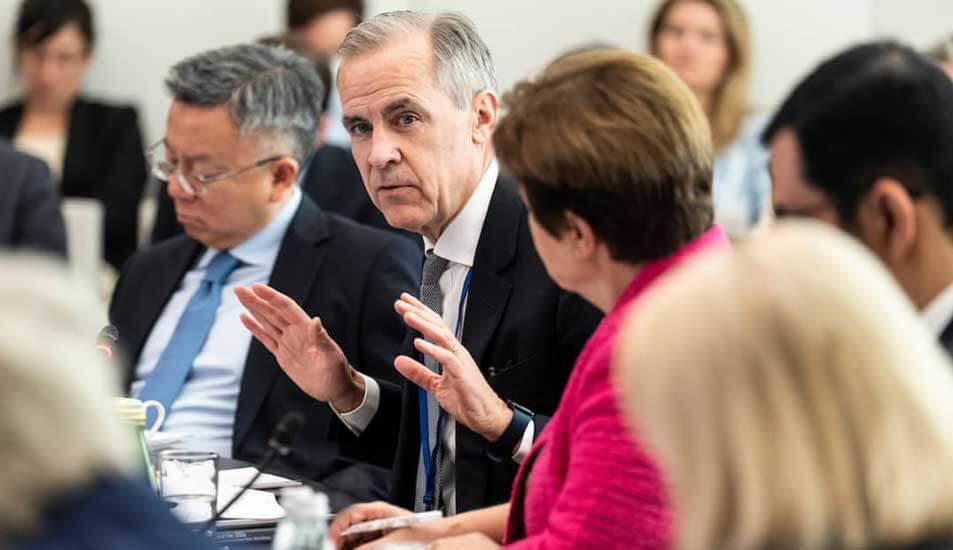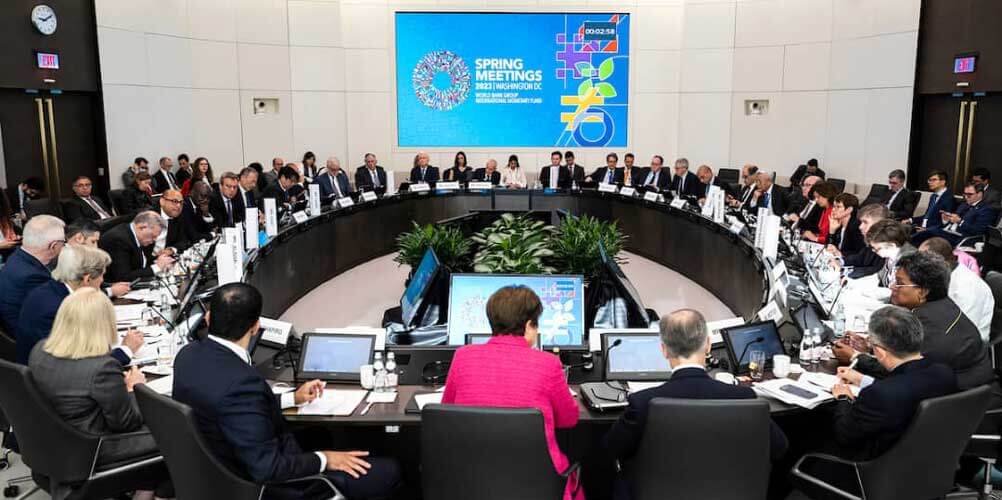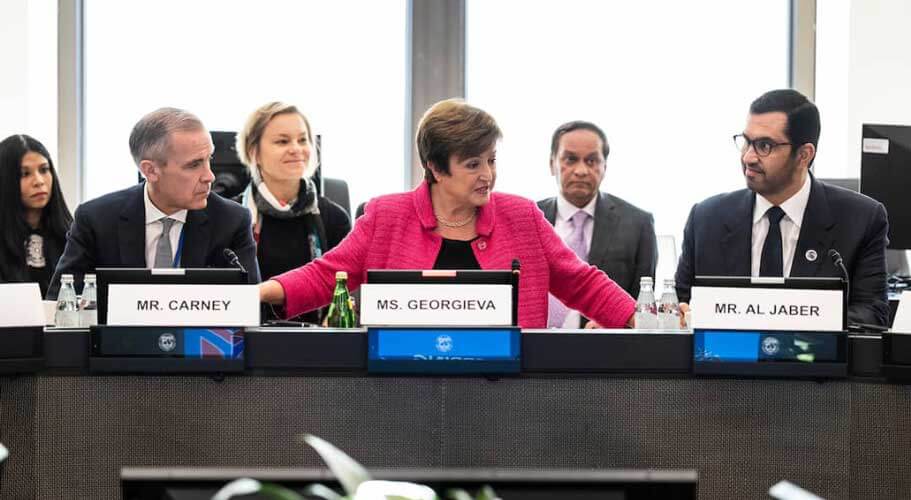IMF Calls For Low-Interest Financing To Achieve Energy Transition In Nigeria, Other Developing Countries
WASHINGTON D.C: As countries intensify the search for massive global investments to reduce emissions and boost resilience, the International Monetary Fund has called for a major shift to harness public and especially, private sector financing.
The IMF said this must include substantially more concessional finance that can lower risk and drive private sector finance more efficiently to emerging and developing countries.
Advertisement
This was the outcome of a roundtable discussion hosted at the IMF headquarters in Washington DC to discuss actions needed to urgently accelerate climate action and finance.
Kristalina Georgieva, Managing Director of the International Monetary Fund, Dr. Sultan Al Jaber, COP28 President-Designate, and Mark Carney, UN Special Envoy for Climate Action and Finance and Co-Chair of the Glasgow Financial Alliance for Net Zero (GFANZ), co-chaired the roundtable session.
Participants at the roundtable included representatives from governments, international financial institutions, development banks, philanthropic organizations, and private financial institutions.
Climate change is one of the most critical macroeconomic and financial policy challenges that IMF members face in coming decades.
Advertisement
Capital is among the most important enablers of climate action, but not enough is getting to the people and places that need it most.
In November 2021, at the United Nations climate change conference (COP26) held in Glasgow, President Muhammadu Buhari announced Nigeria’s commitment to achieving net-zero emissions by 2060.

Following this, Vice President Prof. Yemi Osinbajo launched Nigeria’s Energy Transition Plan (ETP) on August 24, 2022, establishing the country’s strategy to reach a net-zero emissions energy system by 2060.
Nigeria’s energy sector accounts for about 65 per cent of the country’s total greenhouse gas emissions.
Advertisement
The IMF said major shift to net zero also requires that both the public and private sectors finance all components of the energy transition, including both the scaling of clean energy and the managed phaseout of fossil fuels on an accelerated time frame.
To achieve this objective, the IMF stated that all countries need robust climate policies that accelerate the green transition, and stronger mechanisms to promote cooperation and risk-sharing among stakeholders.
For example, it stated that improved policy, regulatory, technological and information frameworks and financial toolkits could support private capital mobilization, and broaden the investor base, especially in emerging and developing economies.

Participants identified areas of work within their respective mandates to be accelerated on the road to COP 28, including: making the investment environment more conducive to climate finance; identifying specific obstacles that impede private sector climate finance; proposing reforms to help strengthen countries’ macroeconomic and balance of payments stability by reducing risks associated with climate change; and using innovative financing instruments to scale up private investment in emerging and developing economies.
They agreed to continue to collaborate between now and COP28 in Dubai, and beyond to define and implement specific measures toward shared goals.
Advertisement
The IMF Boss said by working together, countries can help scale up climate finance so the trillions of dollars that are needed are become available as fast as possible.
Georgieva said, “The impacts of global warming are already destroying lives and livelihoods, so we need a step change in our financing approach to redirect trillions of dollars towards meeting the climate challenge.
“To get there, stronger cooperation and partnerships across the public and private sector are vital – there is no time to waste.”
The UN Special Envoy on Climate Action and Finance and GFANZ Co-Chair, Mark Carney, said to ensure that the impact of the net-zero revolution underway in private finance benefits all countries, there is need for a more efficient and effective multilateral financial architecture.
He said, “I salute the leadership of Kristalina Georgieva, Managing Director of the IMF, and Dr. Sultan Al Jaber, President-Designate of COP28, on this imperative, and look forward to partnering with them and other stakeholders to deliver progress this year.”

COP28 President-Designate, Dr. Sultan bin Ahmed Al Jaber, said that capital and finance are among the most important enablers of climate action and sustainable economic development, but not enough is getting to the people and places that need it most.
Al Jaber said, “For vulnerable communities, across the global south, climate finance is nowhere near available, affordable, or accessible enough.
“Only 20 percent of clean tech investment is going to developing countries that make up over 70 percent of the global population, and the least developed countries receive less than 2 cents on every dollar spent.
“Behind every number there are individual lives, people and communities who should have the right to fulfil their potential and contribute to sustainable global prosperity.
“The world needs to triple the amount of money by 2030 that is available for clean tech investment, adaptation finance, and a just energy transition in emerging and developing countries.
“We need to urgently consider fundamental reform to achieve both climate and development goals. We need substantially more concessional finance that can lower risk in lower income countries and attract private capital at a multiple.
“And we need to explore new instruments to drive private sector finance more effectively and more efficiently to emerging and developing states.
“As the UAE prepares to host COP28 later this year, I am keen to apply a business mindset and action-oriented approach to enable the transformational progress the world needs.
“And I am hopeful that we can find pathways to reignite the relationship between public and private finance to meet development and climate goals at the same time.”



